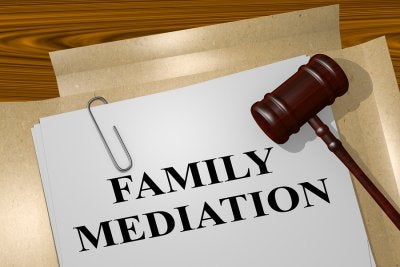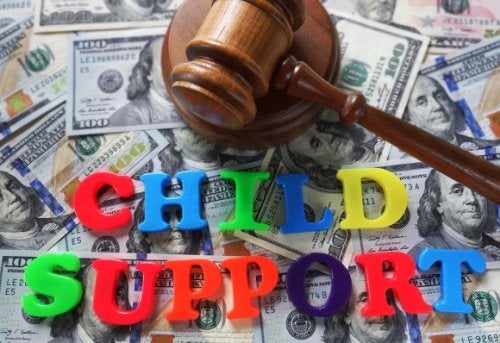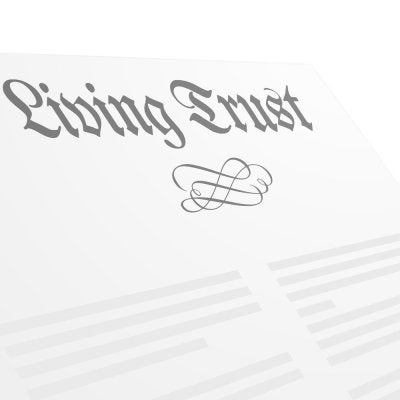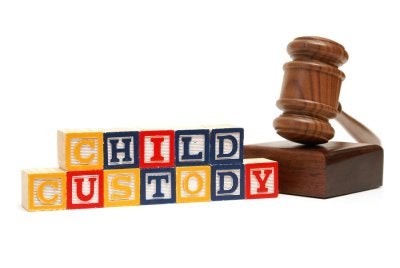-
Finding Your Birth Parents
Individuals who were adopted often have many questions about their birth parents . It isn’t always possible to uncover the identities of the birth parents, especially if it was a closed adoption. However, the first step is to consult a lawyer in Baltimore. A lawyer can guide you through the process of filing consent for contact and a waiver of confidentiality with the Department of Social Services. If your birth parents have also filed this paperwork, then the identities can be disclosed. In many cases, however, mutual consent is not given.
Watch this video to find out what you can do if the adoption was closed and mutual consent is not given. This professional explains that you can have a lawyer petition the court to open the records. In the petition, you must provide compelling reasons why the court should open the records. For example, you may need information about your birth parents for medical reasons.
-
Preparing for Post-Divorce Mediation to Modify Child Support or Custody
It’s often expected that a divorce agreement will resolve family law issues beyond a shadow of a doubt. But in fact, many disputes can arise months or years after the divorce agreement was signed. For example, one party may wish to change the custody agreement or child support arrangement. If this applies to your situation, you can consult a mediation lawyer in Baltimore . He or she may recommend post-divorce mediation. Being well prepared for your mediation sessions can help you get the most out of them.

Gather Documents
Ahead of your first mediation session, you should gather together documents that are relevant to the case. Your lawyer can provide guidance on which specific documents or evidence will be useful for achieving your goals. For example, if you wish to increase the child support payments you’re receiving, you may need evidence that demonstrates that the child’s financial needs are increasing. These might include medical bills or receipts for extracurricular activities. Perhaps you wish to modify the visitation schedule. For example, you might argue that your child’s grades are declining because of the back-and-forth visitation during the week days. Gather together your child’s report card, progress reports, notes from teachers, and similar evidence.
Prepare Proposals
You likely already have a clear idea of what you would like to accomplish in post-divorce mediation. But it can be even more helpful to put your proposal into writing. For example, you might develop one or more alternative schedules of visitation. If you want your child with you during the entire week, you’ll need to be prepared to increase visitation during other times such as school vacations, holidays, and weekends. Understand that it’s unlikely that your proposal will be accepted exactly as is. However, it can provide a good starting point for the discussion.
Adjust Your Mindset
Before going into mediation, your lawyer may counsel you to adjust your mindset. Mediation is intended to resolve conflicts in a mutually agreeable way . It’s expected that parties involved with mediation may not be on the best of terms, but entering mediation with a confrontational mindset is counterproductive. Remind yourself that you’ll have to be willing to compromise to make progress. You might even identify areas where you’re willing to compromise before your session with the mediator.
-
The Rights of Noncustodial Parents
Noncustodial parents do not have physical custody of a child, but are often granted visitation rights and still maintain certain responsibilities, such as providing child support. When custodial and noncustodial parents disagree, it’s important to understand your rights as a noncustodial parent and how they affect your stance during visitation, custody, or child support mediation in Baltimore.
In this video, you will learn more about the rights of noncustodial parents. If you are meeting resistance from the custodial parent when you attempt to co-parent your child, an attorney specializing in family law can help. Filing a petition in court or seeking mediation will ensure that your rights regarding visitation, phone calls, and access to your child’s records are upheld.
-
How Can I Pay Child Support in Maryland?
Child support consists of monetary contributions paid by a noncustodial parent to the custodial parent to provide for a child’s daily needs. Following a divorce or paternity ruling, a judge will typically determine the amount of child support required in Baltimore using state guidelines that take into account income, healthcare costs, alimony payments, and other potential costs for daycare, schooling, and other daily necessities. Child support payments are made by the noncustodial parent to the custodial parent via wage attachment, which deducts the child support payment directly from the noncustodial parent’s paycheck. It is the noncustodial parent’s responsibility to ensure these payments are made on time, regardless of his current employment status, as well as if he becomes incarcerated or disabled. The custodial parent receives these payments directly, so long as she is not receiving Temporary Cash Assistance, or TCA. If the custodial parent is receiving TCA, child support payments are kept by the state and considered reimbursement for TCA benefits.

-
Designating a Guardian and Custodian in Your Will
In the state of Maryland, a child is a minor until he reaches the age of 18, after which he is considered an adult. If you have a minor child under the age of 18, naming a guardian or custodian in your will is an important step toward ensuring he is cared for by an individual you trust in the event that you pass away before your child reaches adulthood. Regardless of whether you have already written a will in Baltimore or are preparing to complete this important task, reviewing or determining your choices for guardian and custodian is important for your child’s future.

Designating a Guardian
A guardian is an individual to whom your child’s care is transferred if both parents pass away. Naming a guardian in your will means you want this person to care for your child as if they were a parent until your child is no longer a minor. Guardians perform all parental duties, including making decisions regarding a child’s upbringing, education, religious teachings, and medical care, so it’s important to choose a person that you trust with your child’s wellbeing. It’s also important to note that if the individual named in your will is not your child’s surviving parent, your wishes could be overridden in court and custody provided to the remaining parent if a judge feels it is the best situation for your child.
Designating a Custodian
Because minor children cannot inherit property or financial assets, you should also name a custodian in your will to handle your child’s inheritance until he reaches a certain age or meets a specific milestone, such as graduating from college. The individual named in your will as your child’s guardian can also serve as his custodian, or you may choose a different person to handle your child’s finances and assets as the custodian. Thus, if you feel the person you want as your child’s guardian is not the best individual to manage his inheritance, you can opt to name a different custodian to protect your child’s financial future.
-
Spotlight on No-Contest Clauses
When you visit an estate lawyer in Baltimore to have your last will and testament drawn up, you might think that the document is beyond anyone else’s ability to challenge. But in fact, after a person dies, a will may be challenged in court. A disgruntled relative might try to claim that the will isn’t valid, for example. This is why you might want to talk to your estate lawyer about including a no-contest clause in your will.
A no-contest clause cannot definitively prevent anyone from challenging the validity of your will in court. However, it can certainly discourage your heirs from trying to do so. For example, if you leave your child $10,000 and your child feels that he or she should have received more, the presence of a no-contest clause means that if your child contests the validity of the will, he or she will receive nothing. On the other hand, if you entirely disinherit the child, then he or she has nothing to lose by attempting to challenge the validity of the will.

-
A Closer Look at Paternity Law and Related Mediation
Paternity plays an integral role in several areas of family law, including the provision of child support and the rights to visitation and input in important decisions regarding upbringing, health, and schooling. If you are concerned about paternity issues or seeking a parenting plan following a divorce that allows both parents to remain active in your child’s life, paternity mediation in Baltimore can help. During mediation, several important parental rights and responsibilities can be discussed and decided upon without the need to seek a court ruling on these matters.

Issues Addressed During Mediation
When a child is born to unmarried parents or when a couple with children opts for divorce, each parent inherently retains certain rights and responsibilities under family law. Regardless of whether both parents wish to actively co-parent the child or whether one parent retains the majority of the decision-making power, certain issues must be resolved such as child support, visitation, custody, medical care, and education. These issues can be discussed and resolved in private with the help of a mediation lawyer to ensure both parents are on the same page regarding rights and responsibilities. If the child’s paternity is in question, paternity mediation can also determine which parent should be responsible for the costs of paternity testing .
Benefits of Paternity Mediation
Seeking mediation to resolve paternity issues or come to an agreement regarding child care and child support is beneficial for several reasons. Mediation helps to foster cooperation between parents whenever possible, improving their relationship and fostering the ability to collaborate and reach agreements or address issues in the future. The process of mediation is also less costly and takes less time to reach a solution than taking the case to court. Mediation allows both parents to take an active role and get the answers they need while working toward an agreement that is best for the parents and the child, rather than requiring the parties involved to follow the mandate of a judge that has no personal stake in the situation.
-
Common Questions About Adoption Mediation
Mediation is an invaluable tool for resolving many different types of disputes, including disputes that involve adoption. Adoption mediation can help adoptive parents and birth parents reach mutually agreeable arrangements that allow them to avoid prolonged and contentious court battles. A mediation lawyer in Baltimore can assist your family in all types of circumstances, including independent adoptions, in-state and out-of-state adoptions, contested adoptions, and many others.

What is a post-adoption communication agreement?
One of the most common problems that adoptive parents encounter is post-adoption contact. An adoption could be proceeding smoothly when one or both of the birth parents abruptly demands ongoing contact with the child after the adoption. Adoptive parents should not feel pressured to immediately agree to the demands of the birth parents. Instead, they can turn to adoption mediation to resolve the conflict by producing a mutually agreeable post-adoption communication agreement. This is a written agreement that is signed by both sets of parents. The purpose of the agreement is to serve the best interests of the child. The agreement outlines the specific contact that will be allowed, including the type of contact (e.g. phone calls, visits, or letters) and the frequency of contact. If visits will be allowed, the agreement should specify the location of the visit and how long it will last. Post-adoption communication agreements, much like child visitation orders, can also make arrangements for dealing with special occasions like birthdays and holidays.
What is a contested adoption?
A contested adoption occurs when a birth parent agrees to place the child for adoption and the other birth parent objects to the adoption. Typically, the birth mother initiates adoption proceedings and the birth father later objects to them. Usually, the law grants preference to birth parents when assessing parental rights. However, adoption mediation can still be useful in contested adoption. In some cases, the objecting birth parent may decide to allow the adoption to proceed if he or she will be granted post-adoption contact.
How can adoptive parents prepare for adoption mediation?
The best way to prepare for adoption mediation is to consult the mediation lawyer. Learn what to expect from a typical mediation session, understand the goals and limitations of mediation, and consider adjusting your mindset. To reach a compromise that is in the child’s best interests, it may be necessary to be open-minded toward the needs of the other set of parents.
-
What Is Interstate Child Support Enforcement?
In family law, an interstate child support case refers to a support order between two parents who live in different states. For example, the custodial parent might live in Maryland and the noncustodial parent might live in Virginia. Sometimes, enforcing a child support order in Baltimore can be difficult when the other parent lives across state lines.
However, as you’ll learn by watching this video, all states have laws that allow for the enforcement of interstate child support orders. If the other parent does not pay his or her child support obligations, you can seek the counsel of a family law attorney. Your attorney may petition the court to enforce the support order. The court can take a number of enforcement actions, perhaps including issuing a wage garnishment order against the non-paying parent.
-
Preparing for a Custody Evaluation
When a child custody and visitation case is contested, the family law judge in Baltimore may order a custody evaluation. A custody evaluator will meet with each parent and the child, along with other relevant parties such as social workers and psychologists. Custody evaluators can also visit each home to make observances about family life. The end result is a written report that the family law judge will use when making a custody and visitation decision. If you’re anticipating a meeting with a custody evaluator, it’s important to sit down with your family law attorney and discuss what you should and shouldn’t do.

Talking to Your Child
The family law evaluator will ask to speak with your child. Many parents are unsure of how to inform their kids of the upcoming appointment. Depending on the age of your child, you could inform him or her that a psychologist wants to talk to him or her about living with mom or dad. However, it’s of the utmost importance to avoid coaching the child on what you want him or her to say. Not only will the family law evaluator be able to discern this, it will likely confuse your child and may have lasting psychological effects.
Knowing How to Answer Questions
Your attorney will likely advise you to practice good listening skills during your conversation with the custody evaluator . Pay attention to what the evaluator is asking you and answer only that question-nothing more. Answer truthfully about your current living situation and your background. If you’re not sure about a question, don’t hesitate to ask for clarification. The evaluator will appreciate your cooperativeness and willingness to get the facts right.
Discussing Sensitive Areas
It’s likely that the custody evaluator will ask you some sensitive questions, such as questions about your strengths and weaknesses as a parent. It’s best not to try to portray yourself as the best parent in the world-the evaluator will see through this. Similarly, try to resist the temptation to portray the other party as a completely incompetent parent. Do acknowledge the other parent’s strengths and weaknesses, and acknowledge the importance of your child having positive, ongoing relationships with both parents.

